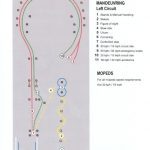The Direct Access Scheme (DAS) allows riders aged 24 and over to take a test on a large motorcycle (600cc), allowing them upon passing the test to ride any motorcycle without restrictions.


The Direct Access Scheme (DAS) allows riders aged 24 and over to take a test on a large motorcycle (600cc), allowing them upon passing the test to ride any motorcycle without restrictions.
You must complete CBT (which you can do as part of an intensive course) and a motorcycle theory before taking this test.
DAS is only available for people aged 24 and over, unless you have already held an A2 motorcycle licence for at least 2 years and are following the progressive access route, which allows people who have held their existing A2 bike licence for 2 years to upgrade their licence to a full unrestricted licence by simply re-taking their practical test on a larger unrestricted motorcycle. Or less than two years if your theories test is still valid.
Our Direct Access motorcycle courses are based in London and are tailored to each individual. For the majority of people, it would be their first time on such a big motorbike, yet at the same time; we also recognise that some people may have been riding big motorbikes for years (e.g. maybe in a foreign country, or off road).
For this reason, we assess each pupil’s needs on an individual basis. We do not dictate that every person who wants to do Direct Access will need a 4 or 5 day DAS course as we know other training schools do. In fact, we do quite the opposite. We advise you on what our various DAS Courses involve, and then let you decide which course is best suited to your experience level.
We will ask you some critical key questions to get an understanding of your experience, which helps us give you an opinion on which course is best suited to you; however the final choice is up to you.
Please bear in mind though, that if you claim to have more experience than you actually do, and opt to do a shorter course to save time and money, there is every chance you will not be in a position to pass your test first time, and may well end up spending more time and money on retaking the exams. This is far more expensive than getting it right first time by getting the required training.
For those pupils who are still unsure which course is best for them, we urge those pupils to come into our offices and speak to an instructor face-to-face, and even try sitting on, and riding the bikes to help both you and us make a correct and viable decision. This can be booked online as a Free assessment.
Day 1: This session consists of Module 1 & Module 2 training from 9am to 3.30pm.
We start off with slow speed manoeuvres at our Wembley HQ. Once confidence has been built and you are comfortable how the larger machine handles, we will set off to our other facility which is about an 1.5 hour ride, utilising a route which covers every aspect of riding as part of module two training. We then develop your skills to cover all aspects of the module one test. We then continue with module two training returning to Wembley for approximately 15:30.
Day 2: Is similar to day1, but we will hone your skills to a standard higher than expected for the tests. This is to allow for the inevitable nerves, that will occur but allows for a drop in performance and to still be high enough to pass.
Day 3: Starting in Wembley we will practice Module one manoeuvres locally, before escorting you to the test centre, waiting whilst you pass your test. We will then continue module two training if time allows.
Day 4: Starting in Wembley we will take you to test, practicing on the roads local to the test centre. It is possible that you may be using these roads as part of your test route, but given the level of training received it should not matter where you test, you should be able to read the road after training anywhere.
INEXPERIENCED RIDERS: We have packages designed for all levels.
The five day course is the same as the four day above, except that the first day is used to teach you how to ride a geared 125cc bike properly, and to develop road craft to the required level, in order to take the four day course.
The six day course starts off with the CBT, before progressing onto the five day course or can be six days plus the CBT, dependant on your learning level.
The new motorcycle test aims to improve the standard of road safety for motorcycle and moped riders. This user group has been identified as having a high risk of injury or death; this is particularly the case for young and inexperienced riders.
The new test will be completed in two modules. The specified manoeuvres conducted at specific speeds will be tested in Module 1 on safe off-road sites and take on average 14 minutes.

There is a minimum speed for the hazard avoidance and emergency stop exercises:
On the day of the Module 1 test, candidates will be asked by the examiner to demonstrate their riding ability on either the left-hand or right-hand circuit. Please note that the standard off-road layout may change due to local conditions on the casual sites.
Those candidates who have demonstrated riding skills of a dangerously incompetent level during Module 1 will not be permitted to take Module 2.
Those candidates who have passed Module 1 will receive a Test Pass Certificate which they must bring with them when they take Module 2.